Child Development Assignment: Promoting Pro-Social Behavior
VerifiedAdded on 2023/01/19
|9
|726
|25
Homework Assignment
AI Summary
This assignment focuses on child development, specifically exploring pro-social behavior in early childhood. It begins with a story about two friends demonstrating peaceful relationships, designed for young children. The assignment then delves into three key factors influencing children's behavior in their early years, highlighting the roles of parents/guardians, attachment, and health/nutrition. It further discusses three effective strategies early childhood teachers can employ to promote pro-social behavior, such as active play, one-on-one time, and role modeling. Finally, it emphasizes the importance of reciprocal relationships between teachers and parents in fostering pro-social behavior, addressing potential conflicts in approaches and the need for collaboration to achieve consistent outcomes. The assignment is supported by references to academic literature.
1 out of 9
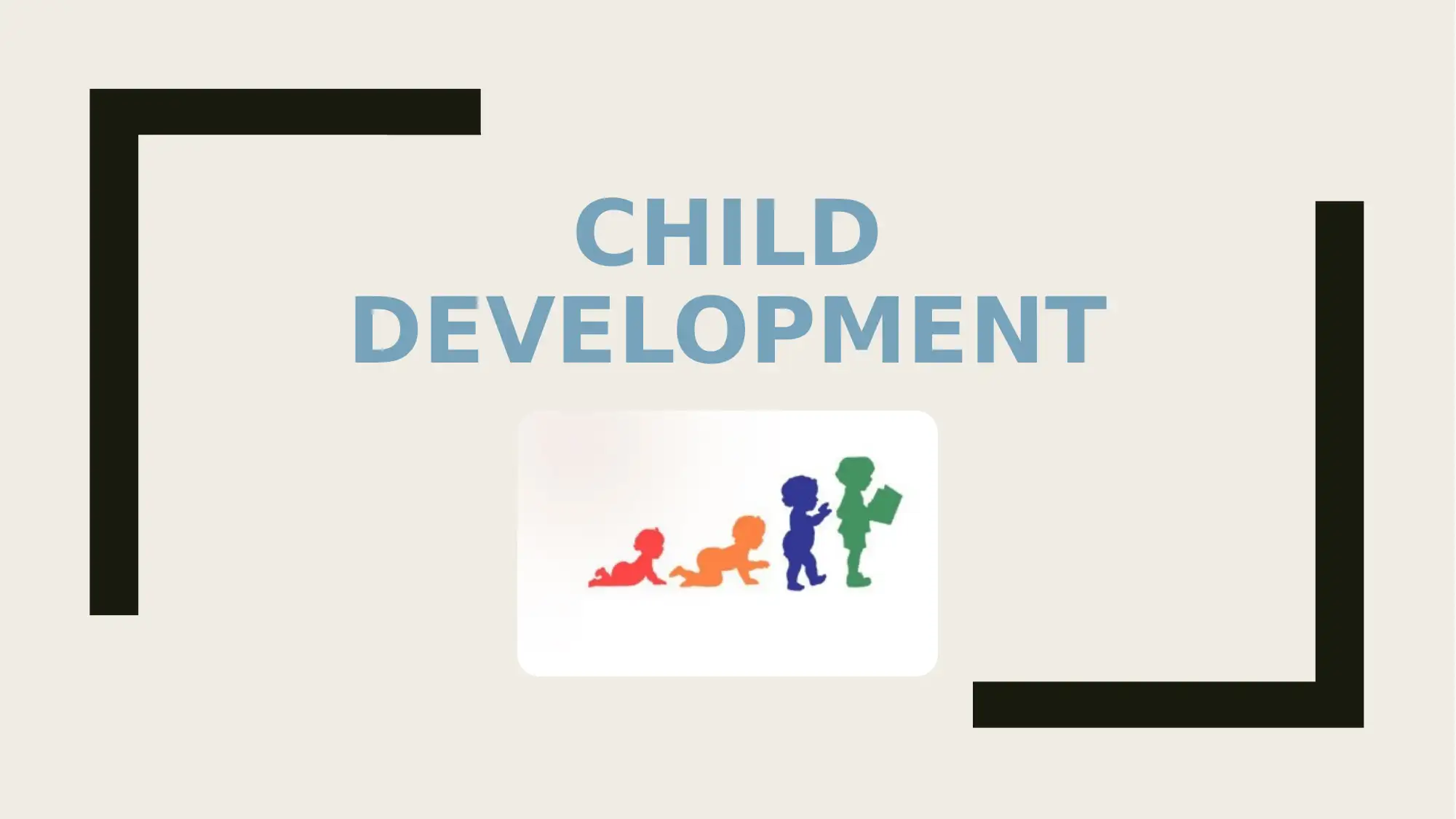
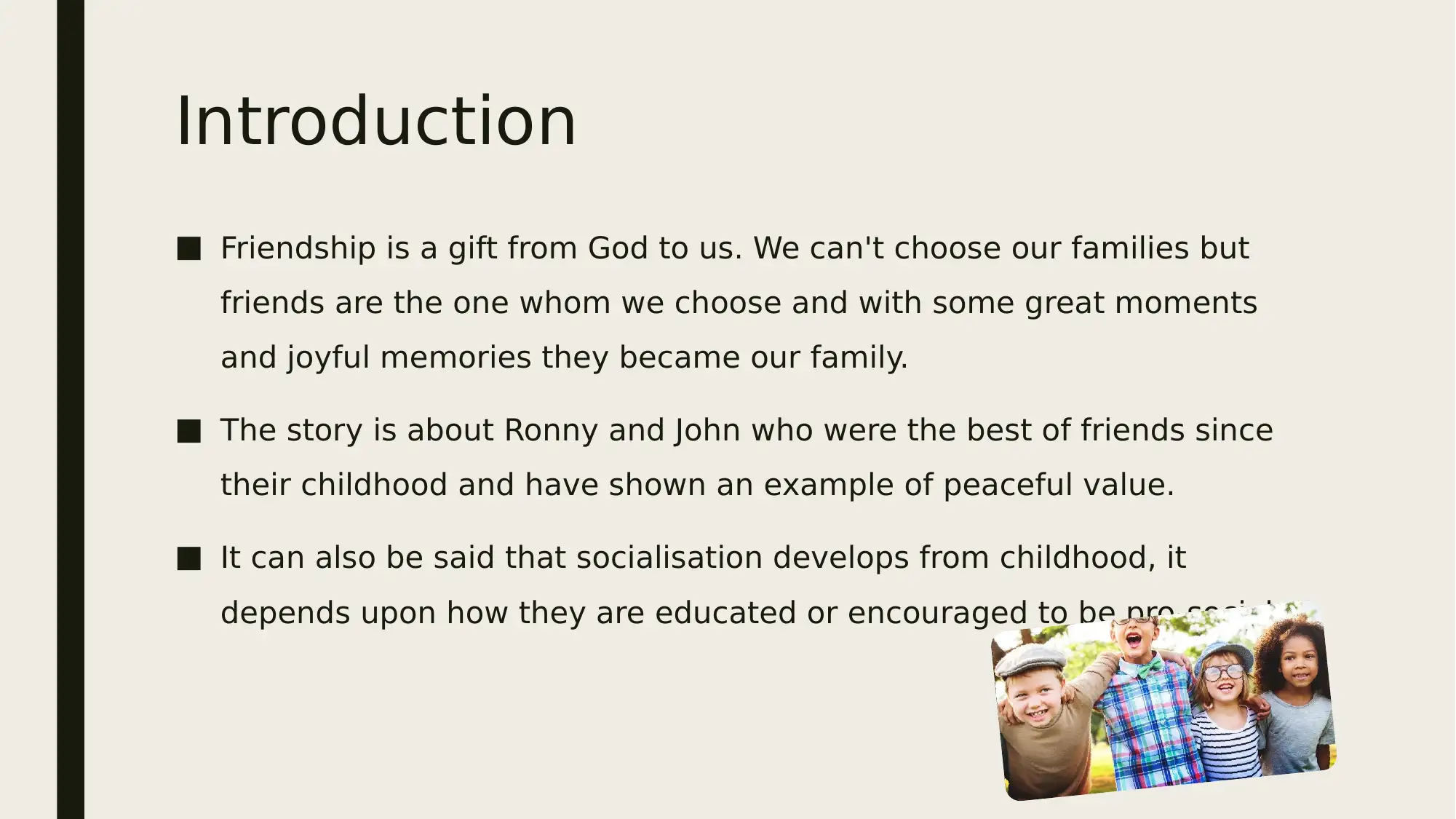
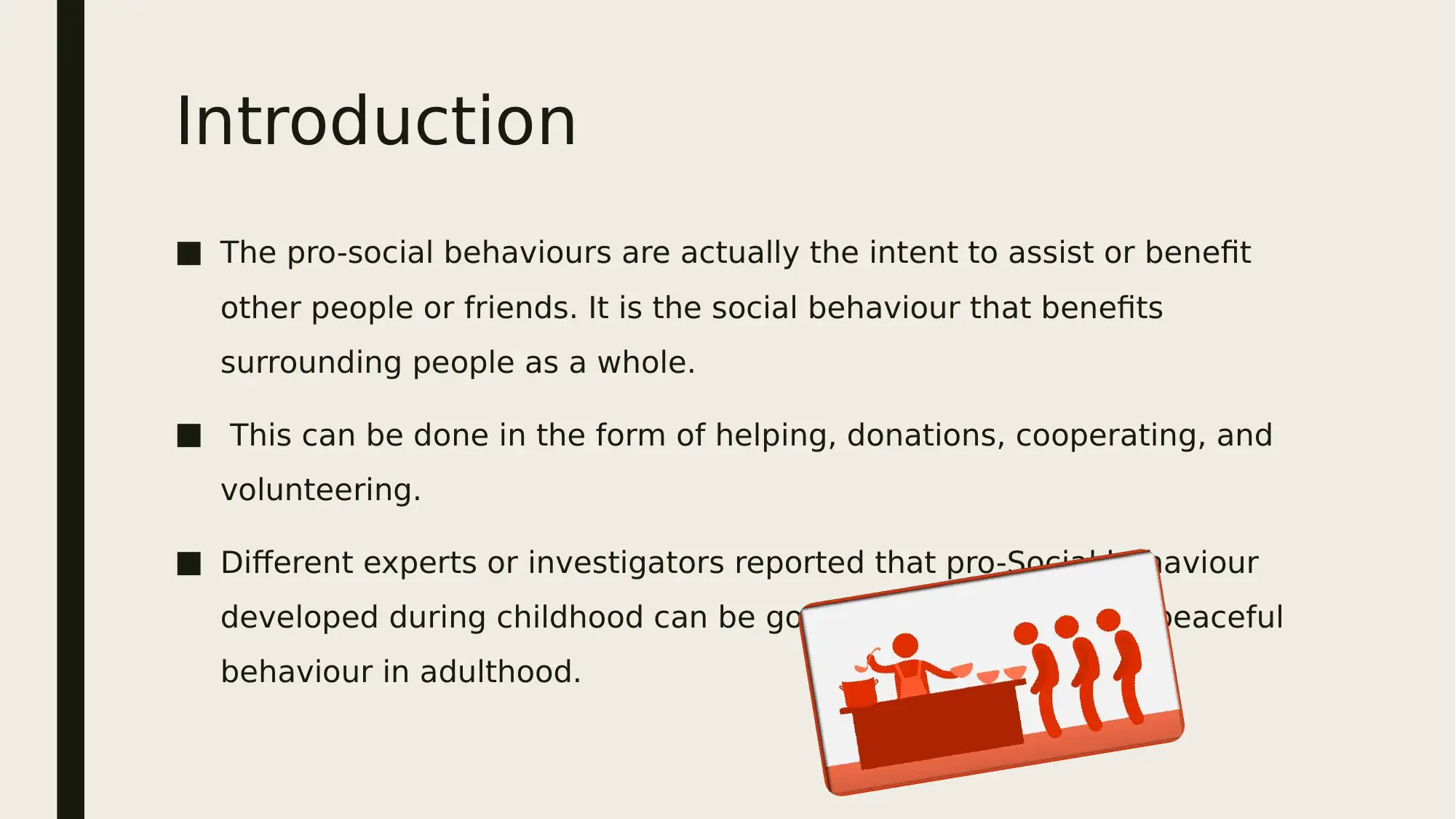

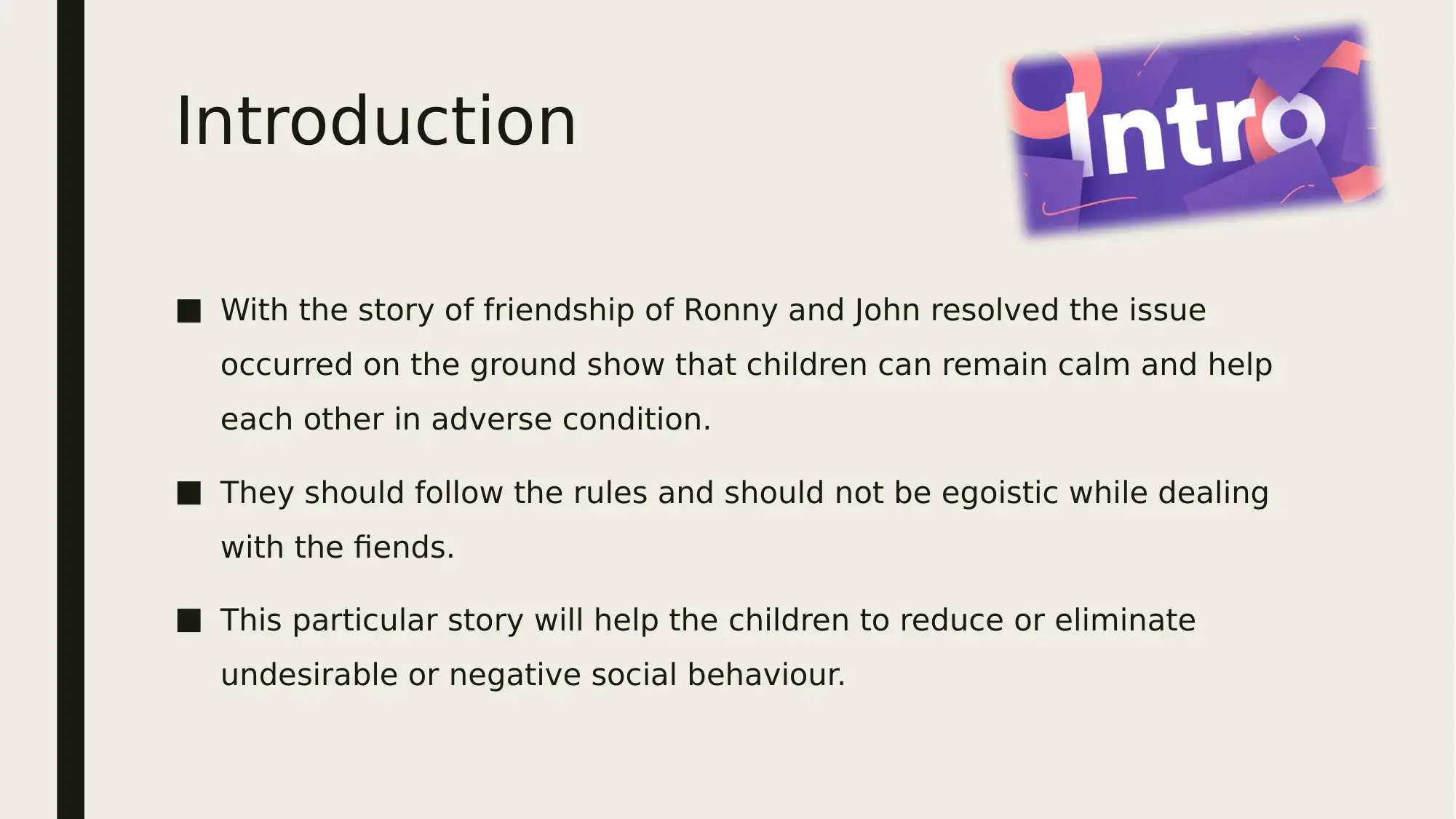
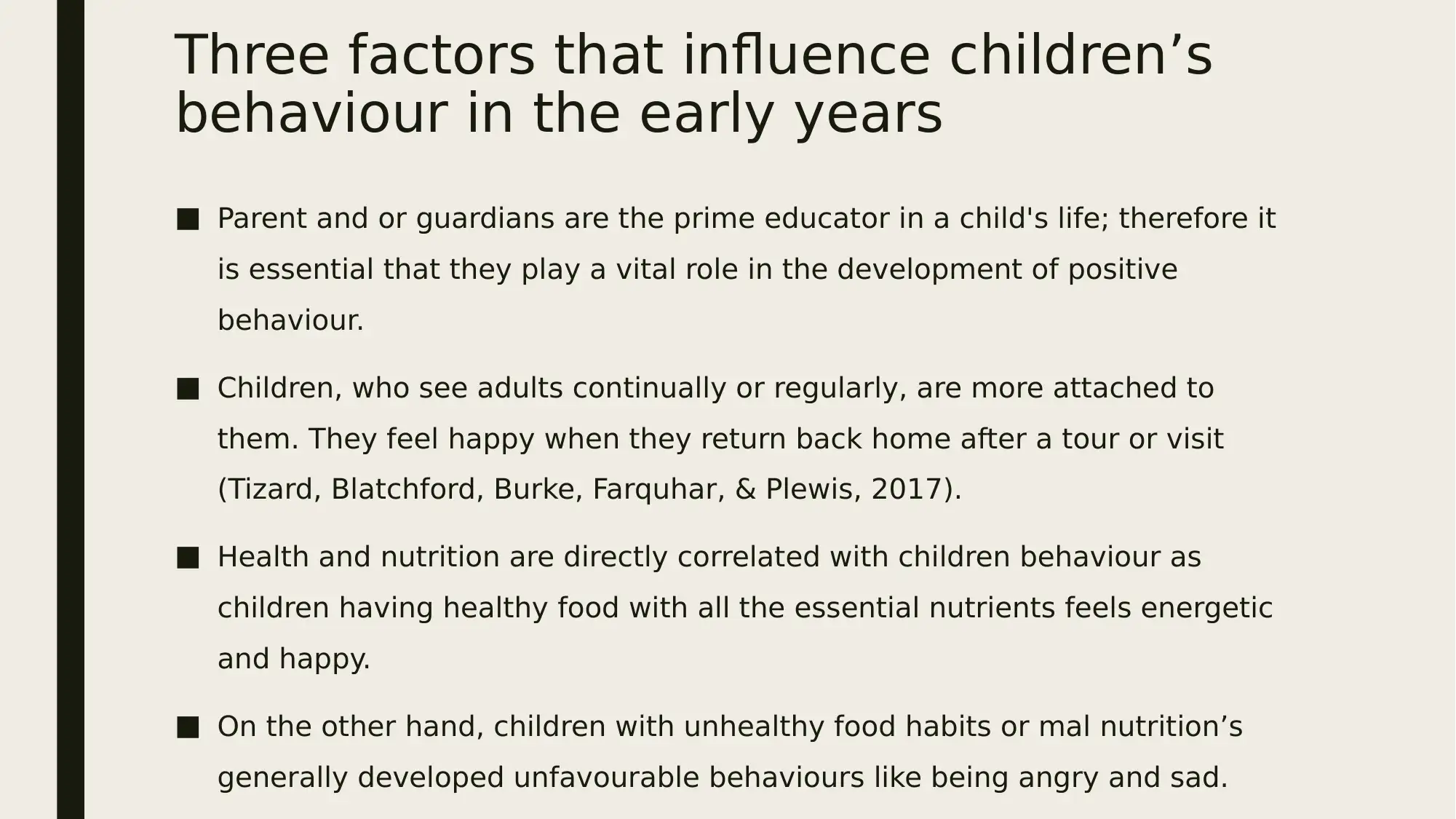
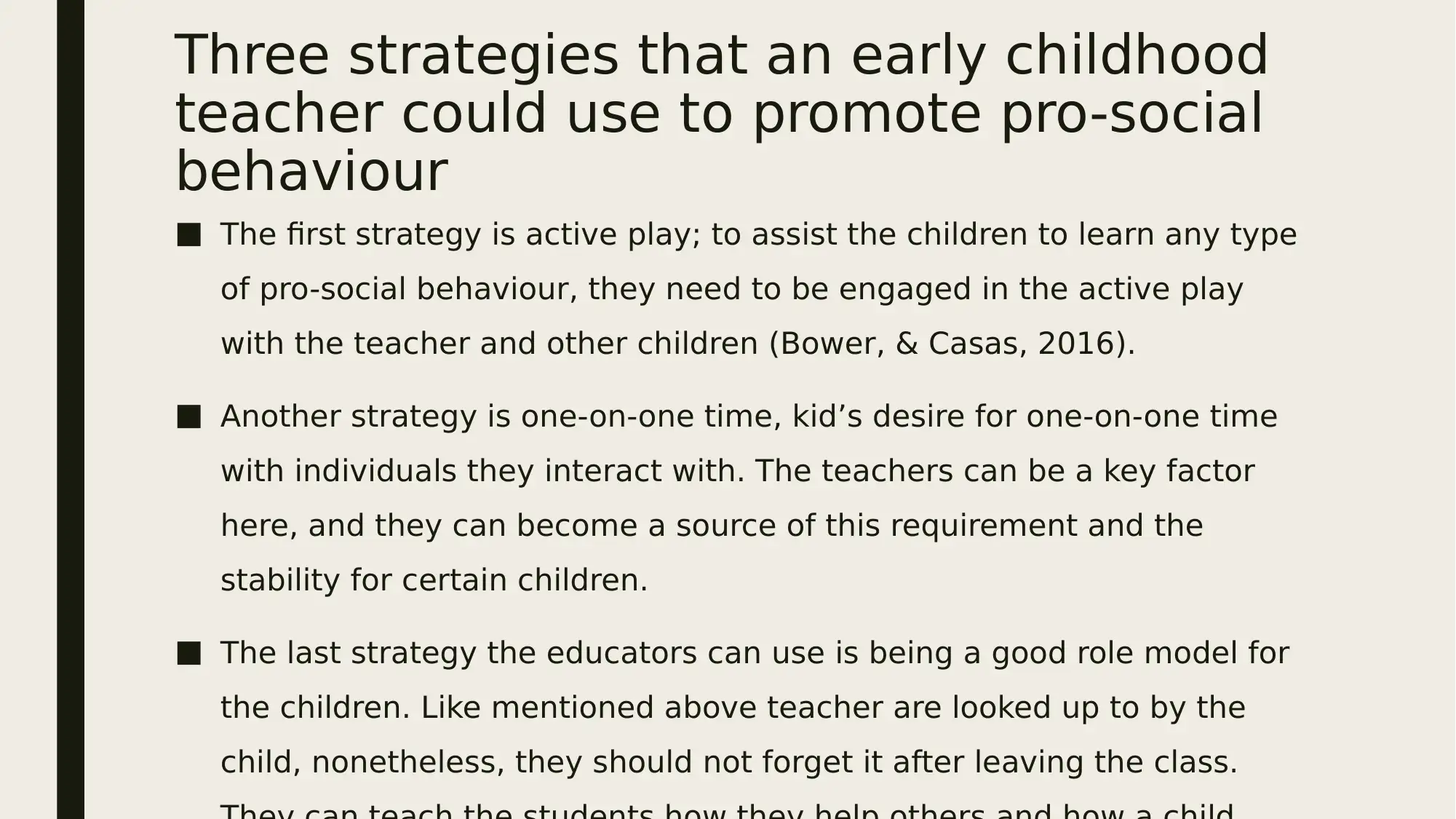
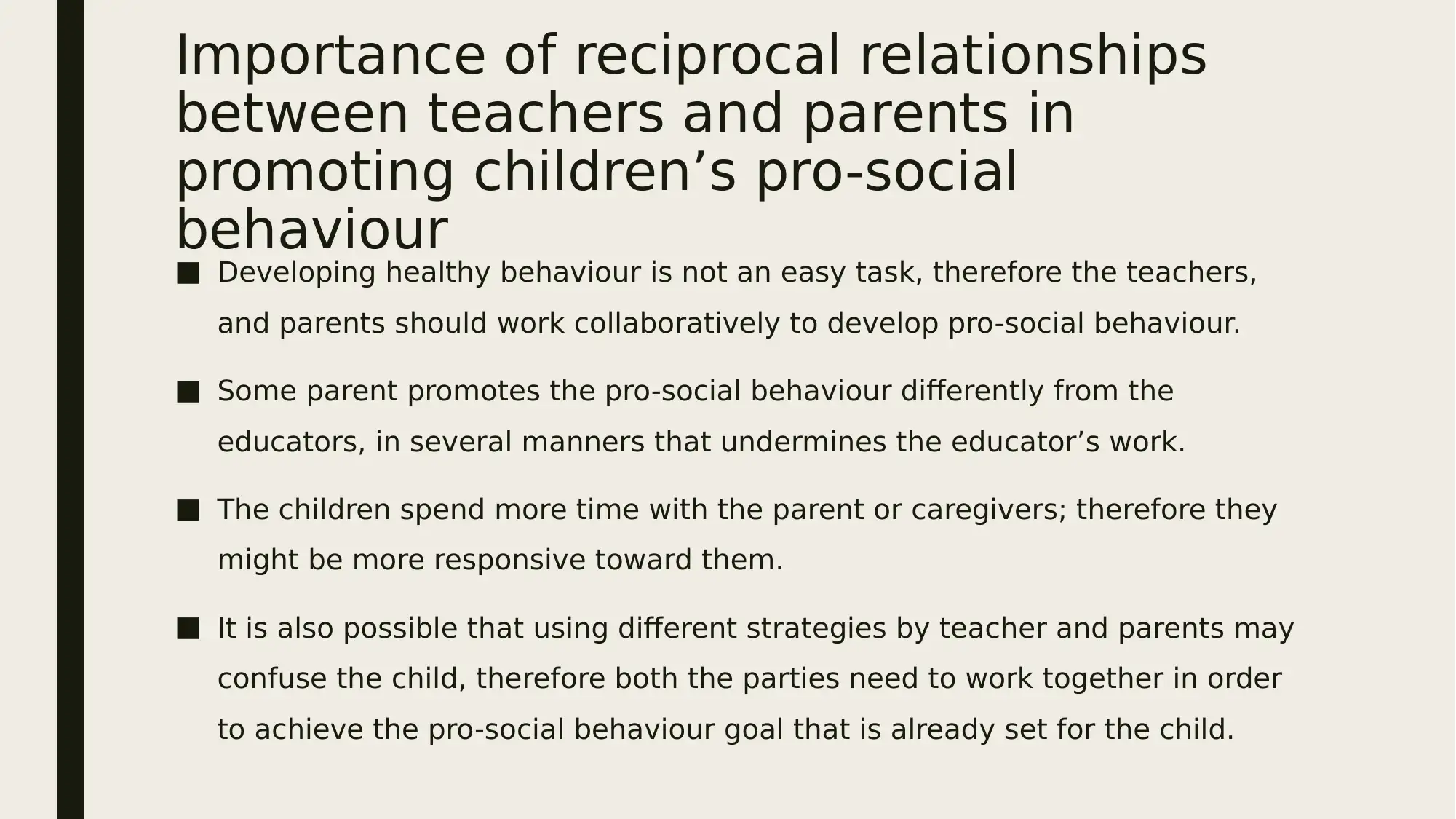
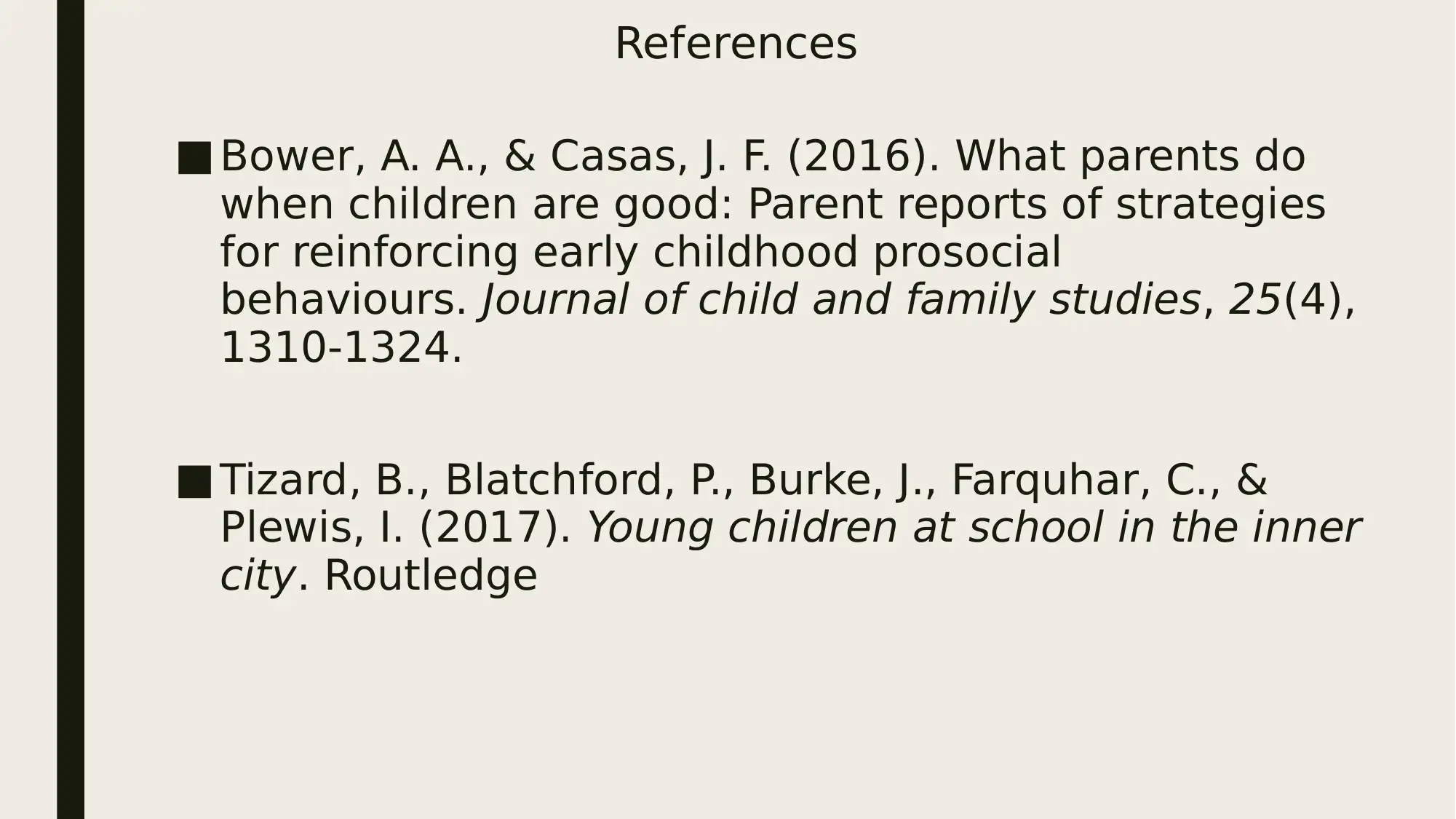






![[object Object]](/_next/static/media/star-bottom.7253800d.svg)